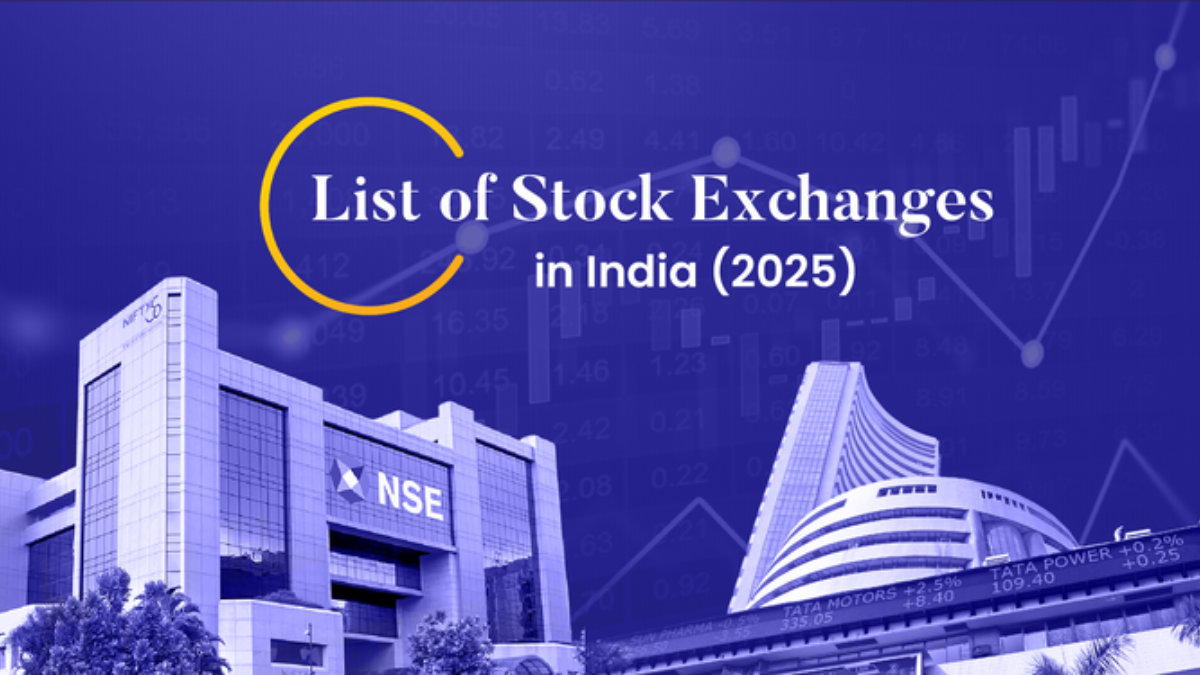India, a burgeoning economic powerhouse, boasts a robust financial ecosystem supported by its major stock exchanges. These exchanges serve as vital platforms for trading securities, mobilizing capital, and facilitating investment opportunities, thereby driving economic growth and development across the nation. Let’s delve into the key stock exchanges that shape India’s financial landscape.
What are Stock Exchanges?
Stock exchanges are financial marketplaces where securities such as stocks, bonds, commodities, and derivatives are bought and sold. They provide platforms for investors to trade these instruments, enabling capital to flow between investors and companies. Stock exchanges facilitate price discovery, liquidity, and transparency in the market, playing a crucial role in shaping the global financial system.
Function of Stock Exchange
Stock exchanges serve several key functions in the financial markets:
- Facilitating Trading: Stock exchanges provide a platform for buying and selling securities, including stocks, bonds, commodities, and derivatives, enabling investors to execute transactions efficiently.
- Price Discovery: Through continuous trading activity, stock exchanges facilitate the process of price discovery, determining fair market values for securities based on supply and demand dynamics.
- Liquidity Enhancement: By bringing together buyers and sellers, stock exchanges enhance market liquidity, allowing investors to enter and exit positions with relative ease and minimal impact on prices.
- Capital Formation: Stock exchanges play a crucial role in capital formation by enabling companies to raise funds through initial public offerings (IPOs) and subsequent equity issuances, thereby facilitating investment in productive ventures.
- Risk Management: Stock exchanges offer various risk management tools, such as derivatives and futures contracts, allowing investors to hedge against price fluctuations and mitigate exposure to market volatility.
- Transparency and Regulation: Stock exchanges enforce listing requirements and regulatory standards to ensure transparency and fairness in trading activities, thereby fostering investor confidence and market integrity.
- Information Dissemination: Stock exchanges provide timely and accurate information on listed companies, including financial reports, corporate actions, and market data, enabling investors to make informed investment decisions.
Major Stock Exchanges of India
The primary venues for trading in the Indian stock market are the National Stock Exchange (NSE) and the Bombay Stock Exchange (BSE). These two exchanges dominate the landscape of stock trading in India, serving as the main platforms where investors buy and sell securities. Additionally, India also has a nascent initiative known as the Social Stock Exchange.
The three major stock exchanges of India are:
- Bombay Stock Exchange (BSE)
- National Stock Exchange (NSE)
- Social Stock Exchange
Largest Stock Exchange in India – National Stock Exchange (NSE)
The Bombay Stock Exchange (BSE), founded in 1875 and headquartered in Mumbai, is India’s largest and oldest major stock exchange. With around 5,000 listed companies, it ranks among the world’s biggest markets. Powered by the BSE Online Trading (BOLT) system, it enables smooth trading in equities, derivatives, and debt securities. Beyond trading, BSE also promotes investor education, financial literacy, and foreign investment, making it a vital hub in India’s growing capital market.
Bombay Stock Exchange (BSE)
Established in 1992 and headquartered in Mumbai, the National Stock Exchange (NSE) is a cornerstone of the Indian financial ecosystem. It facilitates trading in equities, derivatives, and currency futures through its automated electronic trading system, NEAT, ensuring swift order matching and market transparency. The NSE’s pioneering initiatives include the introduction of index-based trading, notably the Nifty 50 index, a widely followed benchmark in the Indian equity market. Continuously innovating, the NSE offers a range of indices and products to meet diverse investor requirements.
Social Stock Exchange
A Social Stock Exchange (SSE) specializes in trading securities of social enterprises and impact-driven organizations, aiming to generate positive social and environmental impact alongside financial returns. SSEs list social impact bonds, green bonds, and other impact investment products, with stringent eligibility criteria emphasizing social and environmental standards. They promote transparency and accountability in reporting performance, providing a marketplace for impact investors to allocate capital toward ventures aligned with sustainable development goals. SSEs globally connect impact-driven enterprises with investors seeking both financial returns and societal benefits, fostering a more inclusive and responsible approach to investing.
List of Stock Exchanges in India
Here is the complete list of stock exchanges in India:
| STOCK EXCHANGES IN INDIA | |||
| Name | Headquarter | Year of Establishment | Current Status |
| Bombay Stock Exchange (BSE) | Mumbai | 1875 | Permanent |
| National Stock Exchange of India (NSE) | Mumbai | 1992 | Permanent |
| Calcutta Stock Exchange (CSE) | Kolkata | 1908 | Permanent |
| India International Exchange (India INX) | Gujarat | 2017 | Valid till Dec 28, 2019 |
| Metropolitan Stock Exchange of India ltd. | Mumbai | 2008 | Valid till Sep 15, 2019 |
| NSE IFSC Ltd. | Gujarat | 2016 | Valid till May 28, 2020 |
| Madras Stock Exchange | Chennai | 1937 | Closed in 2015 |
| Inter-connected Stock Exchange Ltd. | Mumbai | 1998 | Closed in 2014 |
| OTC Exchange Of India | Mumbai | 1990 | Closed in 2015 |
| Bangalore Stock Exchange (BgSE) | Bangalore | 1963 | Closed in 2014 |
| Ahmedabad Stock Exchange | Ahmedabad | 1894 | Closed in 2018 |
| Cochin Stock Exchange | Kochi | 1978 | Closed in 2014 |
| Madhya Pradesh Stock Exchange | Indore | 1919 | Closed in 2015 |
| Saurashtra Kutch Stock Exchange | Rajkot | 1989 | Closed in 2013 |
| Mangalore Stock Exchange | Mangalore | 1984 | Closed in 2014 |
| Vadodara Stock Exchange | Vadodara | 1990 | Closed in 2015 |
| Bhubaneswar Stock Exchange | Bhubaneswar | 1989 | Closed in 2015 |
| Coimbatore Stock Exchange | Coimbatore | 1991 | Closed in 2013 |
| Delhi Stock Exchange Association | New Delhi | 1947 | Closed in 2017 |
| Guwahati Stock Exchange | Guwahati | 1983 | Closed in 2015 |
| Jaipur Stock Exchange | Jaipur | 1989 | Closed in 2015 |
| Lucknow City Stock Exchange | Lucknow | 1978 | Closed in 2015 |
| Ludhiana Stock Exchange Association | Ludhiana | 1983 | Closed in 2014 |
| Pune Stock Exchange | Pune | 1982 | Closed in 2015 |




 Which Dance Form is known as the Ballad ...
Which Dance Form is known as the Ballad ...
 Which Musical Instrument is known as the...
Which Musical Instrument is known as the...
 Which District is known as the Engineeri...
Which District is known as the Engineeri...








